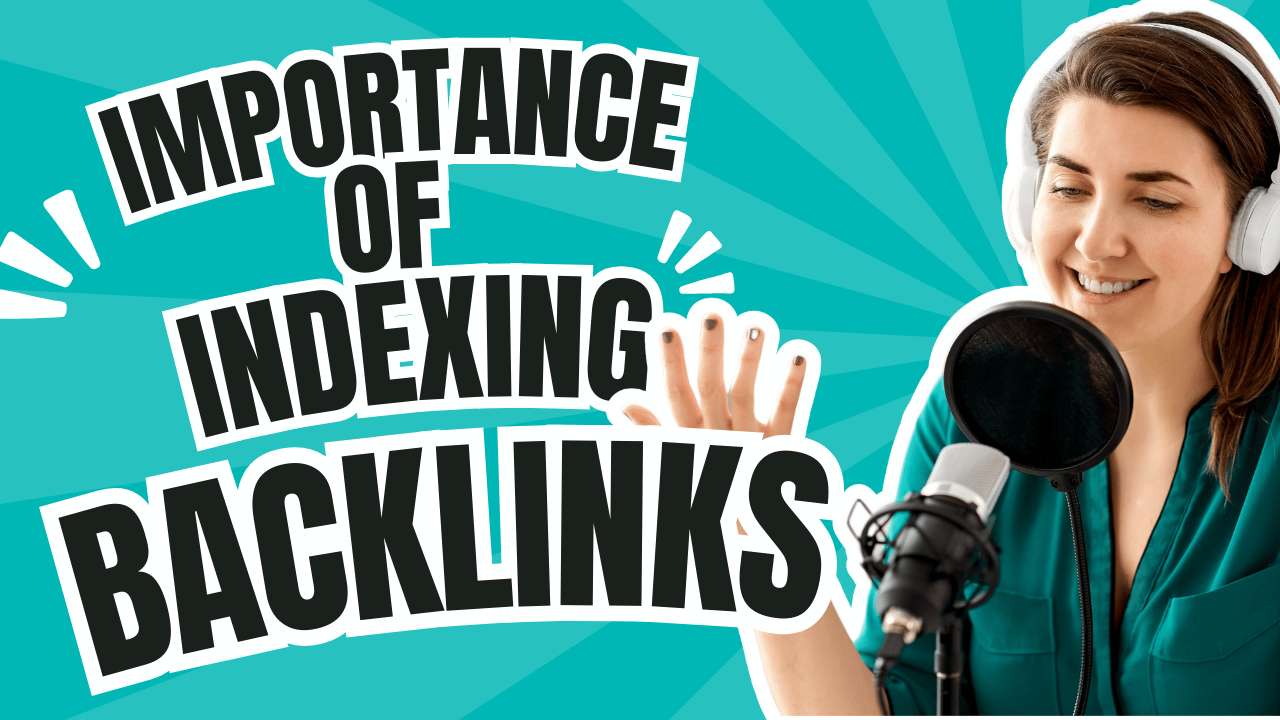SEO
What is the importance of indexing of backlinks into Google?
-
The Importance of Indexing Backlinks
Backlinks are a cornerstone of search engine optimization (SEO), playing a pivotal role in enhancing a website’s visibility, authority, and ranking on search engine result pages (SERPs). However, merely acquiring backlinks is not enough. The true value of backlinks lies in their proper indexing by search engines like Google. If backlinks are not indexed, they remain invisible to search engines, rendering their potential impact on SEO ineffective. This article delves into the critical importance of backlink indexing, examining its role in SEO strategies, how it affects website performance, and the methods to ensure that backlinks are indexed effectively.
What Are Backlinks?
Backlinks, also known as inbound links, are links from one website that point to another. They serve as a vote of confidence, indicating to search engines that the linked website has valuable and trustworthy content. In essence, backlinks act as endorsements, with high-quality backlinks contributing significantly to a website’s domain authority and SERP ranking.
What Does Backlink Indexing Mean?
Backlink indexing refers to the process by which search engines like Google, Bing, and others recognize, crawl, and store information about a backlink in their database. Only indexed backlinks are considered in the evaluation of a website’s authority and relevance. If a backlink remains unindexed, it is effectively invisible to search engines, providing no benefit to the linked website.
Why Is Backlink Indexing Important?
1. Contribution to SEO Rankings
Search engines use backlinks as a metric to determine the authority and relevance of a webpage. Indexed backlinks signal to search engines that the linked website is reputable and contains valuable content. Without proper indexing, even high-quality backlinks fail to influence rankings, diminishing their SEO value.
2. Enhancing Website Authority
The concept of domain authority (DA) and page authority (PA) revolves around the quality and quantity of backlinks a website receives. Indexed backlinks help build this authority, showcasing to search engines that your website is a trusted source of information. This authority is crucial for improving your overall SEO strategy.
3. Improved Organic Traffic
Websites with indexed backlinks often see a boost in organic traffic. When search engines recognize and validate backlinks, they reward the linked site with higher rankings, making it more visible to users searching for related content. This increased visibility translates into greater organic traffic.
4. Validating Link-Building Efforts
Acquiring backlinks is a resource-intensive process, often involving content creation, outreach, and collaboration. If backlinks are not indexed, all these efforts go to waste. Ensuring proper indexing validates the time, energy, and resources invested in link-building campaigns.
5. Strengthening Brand Credibility
Indexed backlinks from authoritative websites bolster brand credibility. When users and search engines see links from reputable sources pointing to your website, it creates a sense of trust and reliability, enhancing your brand image.
6. Avoiding Wasted Resources
Backlinks that remain unindexed provide no ROI. Whether you’ve invested in guest blogging, influencer collaborations, or other link-building tactics, ensuring indexing prevents wastage of your marketing budget and efforts.
Challenges in Backlink Indexing
Despite its importance, backlink indexing is not always straightforward. Several factors can hinder the process:
- Low-Quality Linking Domains
Links from spammy or low-quality websites are often ignored by search engines and may never be indexed. - Lack of Crawling
If search engine bots fail to crawl a webpage hosting your backlink, it will not be indexed. - No-Follow Attributes
Some backlinks have a “no-follow” tag, instructing search engines not to pass link equity. While they can still be indexed, their impact is limited. - Dynamic or JavaScript-Based Links
Links embedded in JavaScript or dynamic content are harder for search engines to crawl and index. - New or Low-Authority Pages
Backlinks placed on new or low-authority pages may take longer to be indexed or may not be indexed at all.
How to Ensure Backlinks Are Indexed
1. Submit Pages to Google Search Console
Use Google Search Console to submit the URL of the page containing your backlink. This helps search engines prioritize crawling and indexing the page.
2. Create High-Quality Content
Publishing valuable and engaging content increases the likelihood of search engines crawling and indexing pages with your backlinks. Search engines prioritize quality, so backlinks placed on well-written and authoritative pages are indexed more quickly.
3. Leverage Social Media
Sharing the page containing your backlink on social media platforms can drive traffic and signal to search engines that the page is worth indexing.
4. Use Indexing Tools
SEO tools like Linklicious, OneHourIndexing, and others can help streamline the indexing process by pinging search engines about new backlinks.
5. Avoid Spammy Websites
Focus on acquiring backlinks from reputable and authoritative websites. Links from spammy or irrelevant sites are less likely to be indexed and can harm your SEO efforts.
6. Internal Linking
Ensure the page hosting your backlink is internally linked to other pages on its website. This increases its crawlability and indexing potential.
7. Monitor Backlink Status
Regularly track and analyze your backlinks using SEO tools like Ahrefs, SEMrush, or Moz. These tools provide insights into which backlinks are indexed and which are not.
The Long-Term Impact of Indexed Backlinks
1. Sustained Rankings
Indexed backlinks contribute to maintaining and improving rankings over time. As search engines recognize the continuous flow of backlinks, they reward the website with sustained visibility.
2. Building a Strong Backlink Profile
A well-indexed backlink profile helps establish long-term credibility and trustworthiness. Search engines view such profiles as indicators of a reliable website.
3. Competitive Edge
In competitive industries, indexed backlinks provide a decisive edge by boosting authority and improving rankings more effectively than competitors with poorly indexed backlinks.
4. SEO Stability
Indexed backlinks create a stable foundation for your SEO strategy. Unlike unindexed links, which may be devalued or ignored, indexed backlinks consistently contribute to your site’s performance.
Conclusion
Indexing backlinks is an essential aspect of any successful SEO strategy. While acquiring backlinks is critical, ensuring their proper indexing amplifies their impact, contributing to improved rankings, increased organic traffic, and enhanced website authority. Given the competitive nature of online marketing, businesses must prioritize backlink indexing to maximize their link-building efforts and achieve sustained SEO success.
In the digital landscape, where search engines continuously refine their algorithms, the importance of indexing backlinks cannot be overstated. By employing best practices and leveraging modern tools, website owners and marketers can ensure their backlinks are recognized, valued, and utilized to their full potential.
- Low-Quality Linking Domains

